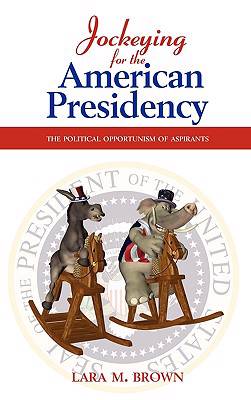
- Retrait gratuit dans votre magasin Club
- 7.000.000 titres dans notre catalogue
- Payer en toute sécurité
- Toujours un magasin près de chez vous
- Retrait gratuit dans votre magasin Club
- 7.000.000 titres dans notre catalogue
- Payer en toute sécurité
- Toujours un magasin près de chez vous
176,45 €
+ 352 points
Format
Description
The quadrennial presidential election is the foremost event in American politics. Though it is, as Tocqueville notes, "a time of national crisis," it is also the time when citizens put their faith in democracy and choose the nation's next leader. Significantly, it is also the time when a handful of Americans jump onto the presidential racetrack and begin jockeying to win the White House. In this first systematic study of presidential aspirants from the 1790s to the present, Lara M. Brown delves into the concept of political opportunism and reveals its significance in shaping the partisan and electoral competition in America. The book not only demonstrates the ways in which the constitutional design of the Electoral College structures aspirant behaviors, but it also suggests that opportunistic aspirants have driven the institutional development of the major political parties and the presidential selection method. This pioneering study presents quantitative models and descriptive statistics, exploring the relationship between aspirant opportunism and electoral success. In compelling style, Brown provides readers with ten detailed case studies of aspirants who won the presidency; three who won their party's presidential nomination, but lost the general election; and a complete chapter on all of the aspirants involved in the 2008 presidential campaign. Supporting these narratives are two exhaustive appendices, which offer first, electoral and popular vote data by region and candidate, and second, summaries of the people and the strategies involved in the campaigns. Overall, the book illuminates the ways in which presidential aspirants turn political conditions and exogenous events to their favor in order to promote their ambitions, or more concisely, how they learn and play at the game of presidential politics. Jockeying for the American Presidency is an important volume for all political science and history collections focused on the presidents, parties and elections in the United States.
Spécifications
Parties prenantes
- Auteur(s) :
- Editeur:
Contenu
- Nombre de pages :
- 494
- Langue:
- Anglais
- Collection :
Caractéristiques
- EAN:
- 9781604977028
- Date de parution :
- 08-07-10
- Format:
- Livre relié
- Format numérique:
- Genaaid
- Dimensions :
- 152 mm x 229 mm
- Poids :
- 889 g







